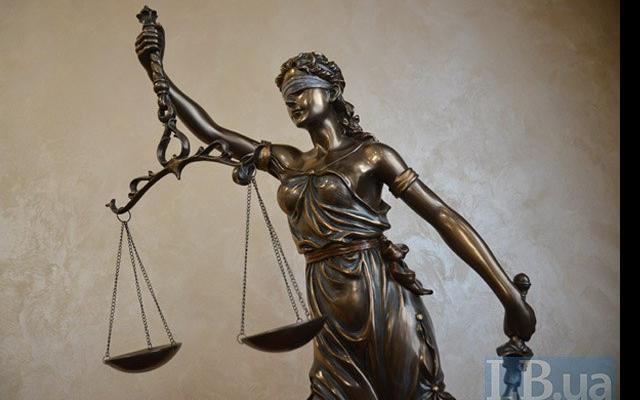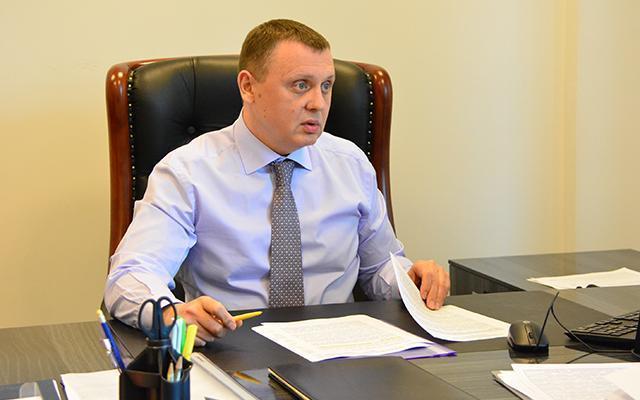
Home quote
For the bar the end of year 2016 was marred by bad news. The draft amendments to the specialized law became an original gift presented either to the Bar’s Day or to the New Year. It was wrapped up in the word “reform”, but the beautiful wrapper did not mollify the bar, and a scandal broke out. It looks like this year will end with even more loud alarms.
Publications
Reform of the bar: rematch with European set-dressing
The reasons for the deep dissatisfaction of the professional community I have already described in my blog with the self-explanatory name “Take it, Sign it”. After all, it is how the draft law was approved under the auspices of the Judicial Reform Council. Moreover, in December 2016 the working group signed the text, prepared by the unknown authors, and put its own work on the back burner. The reasons for this are clear to everyone who has at least any idea of politics at the level of the TV viewer. I will only add that the replacement of the draft law happened without the knowledge of the UNBA, which legally and officially represents the bar institute as such.
The suspicion was caused not only by the behind-the-scenes promotion of the draft law, but also by its content. The fact that the Ukrainian National Bar Association hasn’t received its text upon official request did not give any grounds for optimism. If it is really so progressive, will improve the effectiveness of citizens’ rights protection and strengthen the independent status of legal profession, then why this useful document is not made public? It is revealing that the people who praised the draft law where those who strongly discredited the legal profession, including those excluded from the bar. From the comments of the draft law supporters and our sources it is known that the key changes concern the self-governing, where there are no special problems and the need for state assistance, rater than the advocates’ rights, where the problem has already spread to the international level and, therefore, the legislator shall provide for additional guarantees. The high-profile murders of advocates, illegal detentions and interrogations of advocates as witnesses in their clients’ cases are not so disturbing to the authors of the draft law, as the elections to the bar self-government bodies and qualification examinations for further practicing of law. Obviously, such priorities speak of one thing. Someone needed to divide the national bar into regional “princedoms”, which would have neither authority, nor stable working conditions, nor the opportunity to protect advocates. According to the divide et impera logic, the bar will not have a single voice — in the chaos after the national system collapse the state will one by one steamroll all local bar communities.
Almost a year ago everything was done to make it clear: the bar reform will not be public, and the entire professional community will be given the role of observers of the liquidation of independence of the constitutional institution responsible for protection of the citizens’ rights and freedoms. To be honest, the adoption of the previous two laws on the bar — in 1992 and 2012 — was much more democratic and respectful towards the advocates.
Having received such an unpleasant result of cooperation with the working group, the bar immediately began to sound the alarm, and the situation calmed down: the draft law did not appear in the Parliament, in the information space or in the professional circles. But, as it turned out, it was not buried down and 11 months later it was submitted to the Council of Europe experts in order to assess its compliance with the minimal (!) European standards. On October 4 the Council of Europe Office in Ukraine invited the UNBA leadership to a meeting to discuss this document. The initiators of the meeting were very surprised to learn that they were working with a secret draft law. It is not yet available to UNBA, and the repeated request on the eve of the meeting was once again denied. Thus, the European experts eye-witnessed that in a legal democratic country the bar reform is being conducted without participation of the bar. I wonder how this approach can be adjusted to European standards? After all, if applying it, the Stalin’s collectivization can be called an agrarian reform by the European model.
In fact, in order to assess the compliance with the European standards of democracy and law, the draft law should have been submitted to the Venice Commission before it is transferred to the Parliament. This is an honest, logical and professional step, because in this case the draft law would receive a comprehensive in-depth conclusion. It is the submission to the Venice Commission that the UNBA now insists on in its appeals to both the state leadership and the Parliamentary Assembly of the Council of Europe. The UNBA delegation has already visited the regular PACE session and informed that the Ukrainian bar was under the threat of deviation from the European recommendations for the organization of legal profession. The secret nature of the reform, aimed at dismantling of the self-government system, has become the key message of these meetings. The PACE was very surprised that Ukrainian reform came to the point that the state decided to review the fulfillment of Ukraine’s obligations related to the ensuring of the work of a single professional bar association.
Why the submission of the draft law to the Venice Commission didn’t crossed the mind of the draft law initiators? Because the evaluation according to the methodology of the Council of Europe experts will take place without taking into account the provisions of the effective legislation, and this is very convenient. During the meeting the Council of Europe representatives explained that within the framework of their mission they are not authorized to study the current situation in legal profession and assess the effectiveness of the bar self-government; their task also does not include the analysis of the legal environment (namely, a critical number of violations of the advocates’ rights) and the way the draft law is prepared. However, if necessary, the authority of the CoE experts can be expanded. I hope this will happen. Otherwise, such a superficial assessment will not answer the main questions — the appropriateness of the proposed amendments, and what is good and what is bad in the current practice. It’s as if you blindly prescribe a certified medication to the patient, not being interested in his disease.
A logical question that has to be answered is: why did they need such an ‘express’ method? Because of the urgency or because of the desire to replace the full-scale European expertise with a quick conclusion about the minimal compliance of this detached from the reality text with the established standards? Or because of the fear that the idea to redraft the effective law will not be supported, since it was assessed by the Venice Commission in 2012 and was adopted taking into account all recommendations given. In 2012 for the first time in Ukraine the bar self-government was established in accordance with the PACE recommendations, and for the last 5 years these standards have not changed. In addition, last year reports of the CE project emphasized that there were no rationales for the amendments to the law. These questions are not rhetorical, and the answer to them is one: to make it look like ‘approved’ by the EU. Will it happen? Depends on our European partners.
It is important to recall that this ‘reformative’ draft law, in fact, has already received a negative assessment of another European structure — the ССВЕ. The largest bar association, comprising over a million European lawyers, as early as December last year, sent another intervention letter to the Ukrainian leadership. Referring to the key international documents, the ССВЕ noted that the bar reform should be conducted through consultations with the professional bar association. And it is one and only in Ukraine. It was provided for by the law of 2012 and required by recommendations of several PACE resolutions. And there’s no need to replace such legal representation of the profession with non-governmental organizations having consonant names. This rude maneuver is too noticeable.
After an extraordinary meeting of the Bar Council of Ukraine, meetings in Strasbourg, appeals to the authorities and dialogue with the Council of Europe Office, we expect that the position of the bar will be heard and the draft law will not be submitted to the Parliament tomorrow. We presented enough arguments to return the reform to the stage of an open professional discussion with full participation of the bar, acting by its official representative. This is not our professional ambition but the provisions of international law, starting with the “Basic Principles on the Role of Lawyers” adopted by the UN. The involvement of the bar in this process is the first and main condition for the reform to comply with European standards. Otherwise, there’s no need to call it the reform of justice — it’s just a way to establish the political dependence of the bar. Quite short-sighted step, since it is entirely possible that all those attempting to get manual control of the bar will need a real, independent advocate and, probably, very soon.
Blog of the advocate, Secretary of the Bar Council of Ukraine, member of the High Council of Justice Pavlo Hrechkivskyi is posted in the online media outlet LBua Livyi Bereh.

Pavlo Hrechkivskyi
Advocate, Secretary of the Bar Council of Ukraine, Member of the High Council of Justice
Other publications author
Publications

Censor.net Protecting advocates – protecting justice: addressing concerns about the new law

Ihor Kolesnykov A BRIEF SUMMARY REGARDING THE APPLICATION OF THE ORDER ON EXTENDED CONFISCATION IN LATVIA REGARDING FINANCIAL ASSETS OF…

Valentyn Gvozdiy WORKING IN A WAR ZONE

Lydia Izovitova Formula of perfection

Sergiy Vylkov Our judicial system is so built that courts do not trust advocates

Iryna Vasylyk Advocacy in the proclamation of Independence of Ukraine

Oleksandr DULSKY When we cross the border of the Supreme Anti-Corruption Court, we get into another department of the National Anti-Corruption…

Vadym Krasnyk The UNBA will work, and all obstacles and restrictions are only temporary inconveniences

